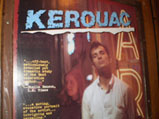
Spontaneous Composing & Freewriting
Connections/Differences between Freewriting and Spontaneous Prose
Finally, I want to briefly trace some of the intersections and distinctions between freewriting and spontaneous composing. Peter Elbow (1985) articulated the value of freewriting in “The Shifting Relationships between Speech and Writing.” In this text, Elbow said that the perceived “indelibility” of writing makes it difficult for writers to just say what’s on their mind; writing is not usually seen as a being a medium for “figuring things out” but rather as a medium for expressing something that has already been decided. In the same piece, Elbow said we need to find ways to “exploit the ephemeral qualities of writing”—that we desperately “need a scheme for nonplanning in our discourse” (pp. 287-288). He proposes freewriting—which he also calls spontaneous writing—as a way of making writing more ephemeral, less planned, generative and flexible versus fixed and determinate. In this sense, spontaneous composing is much like freewriting; that is, it is writing to not to express a predetermined thought but to develop and work through ideas.
But there are some important distinctions between spontaneous composing and freewriting as well:
- First, spontaneous composing as I have proposed it is place-based. Although Kerouac did not necessarily intend spontaneous prose as a place-based methodology, I am rearticulating it as a place-based method that calls attention to place and space, particularly as these concepts inform human relationships.
- Second, freewriting is written; spontaneous composing can happen in a variety of mediums. Again, what I want most is to provide students with an avenue for composing from what they know, in whatever way they feel most comfortable. It provides a way of composing in which students are asked to consider the material dimensions of composing texts.
- Finally, spontaneous composing asks students to consider the differences between writerly and readerly texts. Students must think about how an audience affects the way a text is composed, and also how the medium might affect the way an audience interprets a text.